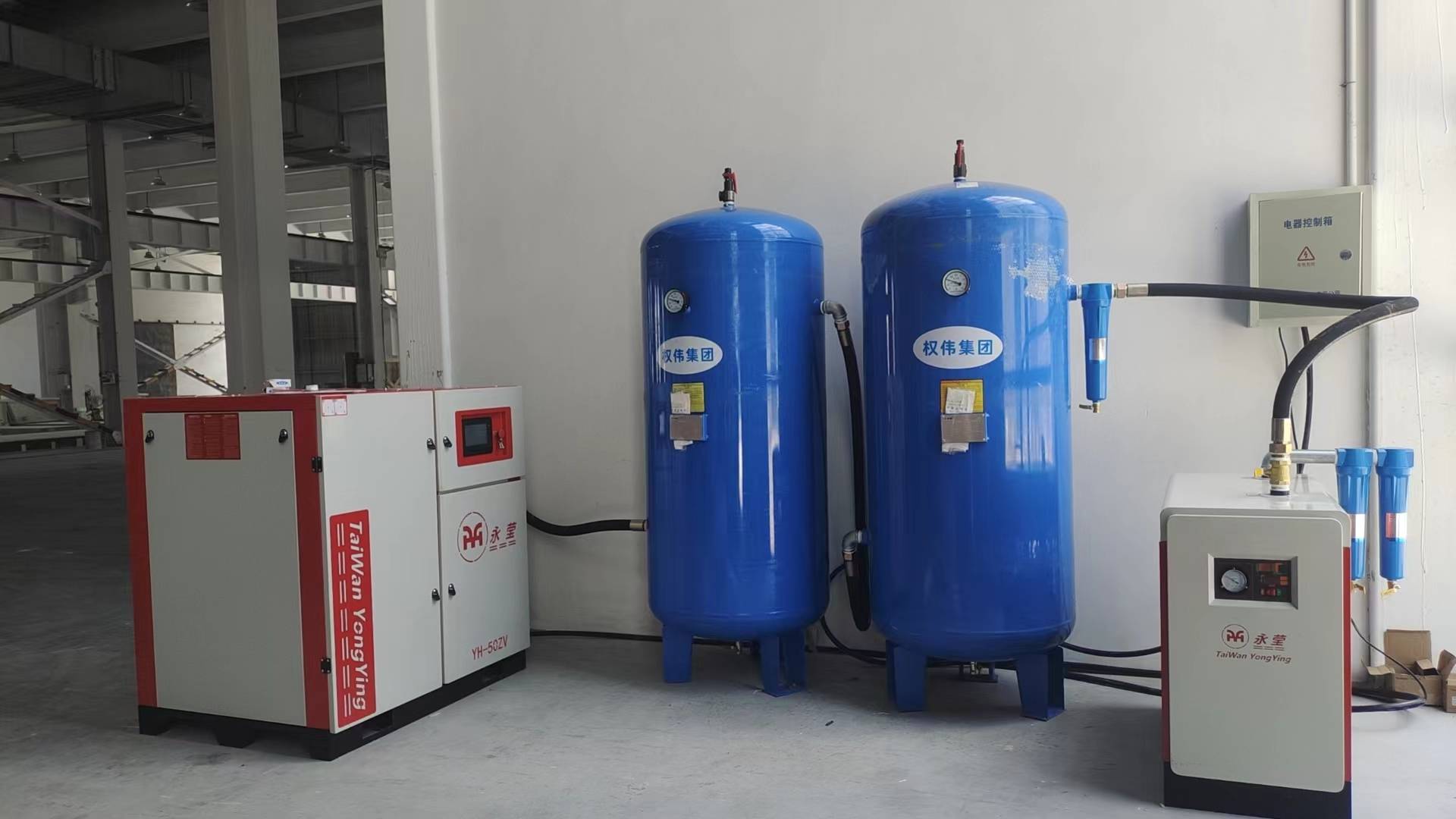Sản xuất hiện đại đòi hỏi các giải pháp thông minh hơn và nén khí công nghệ đã vượt qua thách thức. Các hệ thống tiên tiến ngày nay kết hợp trí thông minh kỹ thuật số tiên tiến với kỹ thuật bền vững để mang lại hiệu suất và hiệu quả chưa từng có.
Hệ thống điều khiển thông minh
Máy nén mới nhất có các tính năng:
• Tối ưu hóa do AI thúc đẩy liên tục học hỏi và thích ứng với các mô hình sản xuất của bạn
• Thuật toán bảo trì dự đoán xác định các vấn đề tiềm ẩn trước nhiều tuần
• Giám sát kết nối đám mây với bảng thông tin hiệu suất thời gian thực
• Điều chỉnh áp suất chính xác duy trì độ ổn định ±0,1%
Cách mạng hiệu quả năng lượng
Công nghệ đột phá mang lại:
• Bộ truyền động tốc độ thay đổi giảm tiêu thụ năng lượng tăng 50-65%
• Hệ thống thu hồi nhiệt tiên tiến thu được 95% năng lượng thải
• Trình tự thông minh để vận hành nhiều máy nén tối ưu
• Giám sát và phân tích năng lượng theo thời gian thực
Tích hợp liền mạch Công nghiệp 4.0
Máy nén hiện đại có chức năng:
✓ Các nút được kết nối trong mạng nhà máy thông minh của bạn
✓ Nguồn dữ liệu cho nền tảng phân tích dự đoán
✓ Các thành phần tích hợp trong hệ thống sản xuất tự động
✓ Bảo mật các điểm cuối trong hệ sinh thái IoT công nghiệp
Kỹ thuật bền vững
Các tính năng thân thiện với môi trường bao gồm:
• Công nghệ không dầu cho sản xuất sạch
• Hoạt động cực kỳ yên tĩnh dưới 60 dB
• 98% vật liệu xây dựng có thể tái chế
• Khả năng giám sát lượng khí thải carbon
Công nghệ sẵn sàng cho tương lai
Những đổi mới mới nổi tập trung vào:
• Hệ thống nén tương thích với hydro
• Điện toán biên cho việc ra quyết định cục bộ nhanh hơn
• Tự chẩn đoán các thành phần thông minh
• Giải pháp bảo trì tự động
Sự tiến hóa trong công nghệ nén khí này chứng minh cách thiết bị công nghiệp truyền thống có thể chuyển đổi thành tài sản thông minh, bền vững. Bằng cách kết hợp trí tuệ kỹ thuật số với thiết kế tiết kiệm năng lượng, máy nén hiện đại đang giúp các nhà sản xuất đạt được cả sự xuất sắc trong hoạt động và mục tiêu về môi trường - chứng minh rằng ngay cả các hệ thống cơ bản cũng có thể thúc đẩy tiến bộ có ý nghĩa trong tính bền vững của công nghiệp.
Sự tiến bộ liên tục hứa hẹn hiệu quả và tự động hóa thậm chí còn cao hơn, đảm bảo hệ thống khí nén vẫn là thành phần quan trọng trong các nhà máy của tương lai. Khi các công nghệ này phát triển, chúng sẽ đóng vai trò ngày càng quan trọng trong việc giúp các ngành công nghiệp đạt được mục tiêu khử cacbon trong khi vẫn duy trì năng suất cạnh tranh.